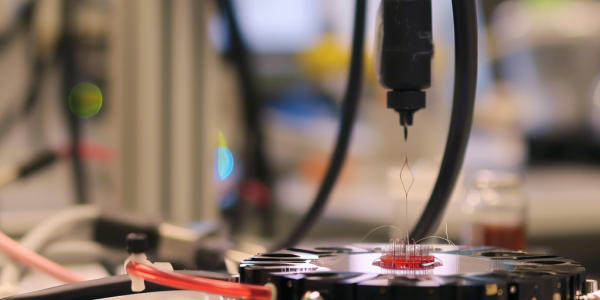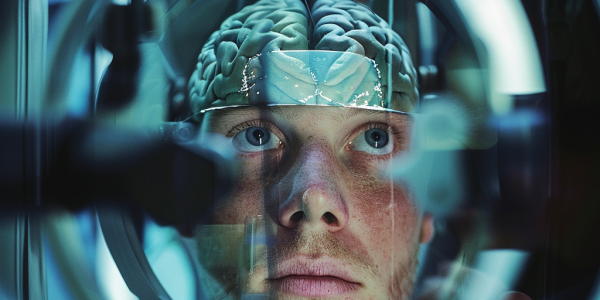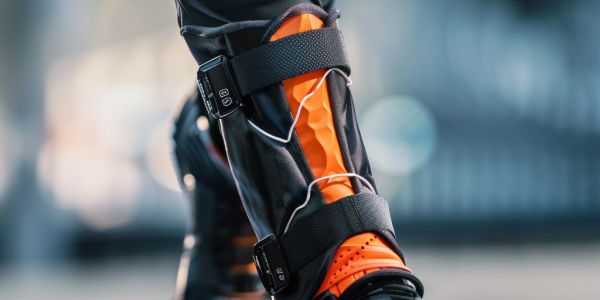Potential Breakthrough in PSP Diagnosis
Researchers at the University of California, San Francisco have identified a pattern in the spinal fluid of Progressive Supranuclear Palsy (PSP) patients, offering hope for a diagnostic test and targeted therapies. Early diagnosis is crucial as PSP progresses rapidly and current treatments are ineffective. Utilizing high-throughput technology for protein analysis, the study may revolutionize PSP diagnosis and treatment.
Study Finds Genetic Risk of Alzheimer’s Disease More Influenced by Mother’s Side
A recent study published in JAMA Neurology reveals that the genetic risk of developing Alzheimer’s disease is more influenced by the mother’s side than the father’s side. With the prevalence of dementia expected to nearly double every 20 years, these insights could lead to improved methods of diagnosis, treatment, and prevention. The study, analyzing data from over 4,000 individuals, emphasizes the importance of understanding familial influences on Alzheimer’s risk for developing targeted interventions and treatments.
Study Reveals Alarming Increase in Mortality Rates from Neurological Diseases in Young Adults
A recent preprint study by Phinance Technologies reveals a concerning increase in mortality rates among individuals under 44 due to neurological diseases. The study highlights a significant rise in deaths linked to conditions like Guillain-Barré syndrome and acute disseminated encephalomyelitis, signaling a departure from historical trends. This alarming trend underscores the need for further investigation and proactive measures to address this growing public health concern.
MIT Engineers Develop Implantable Ultrasound Device for Neurological Disorders
MIT engineers have developed the ImPULS device, an implantable ultrasound technology that could revolutionize the treatment of neurological disorders like Parkinson’s disease. This groundbreaking device offers a minimally invasive alternative to traditional deep brain stimulation, potentially reducing tissue damage and increasing treatment efficacy. The device, as thin as a human hair, uses ultrasound instead of electricity for deep brain stimulation, showing promising results in triggering dopamine release. This innovation not only has therapeutic applications but also holds promise for advancing neuroscience research.
Groundbreaking Discovery in Parkinson’s Disease Research
Groundbreaking research on Parkinson’s disease reveals potential FDA-approved treatment targeting cell surface protein Aplp1 and Lag3 to block spread of harmful material. Findings suggest promising therapy avenue already available, offering hope to millions worldwide.
Smartwatches and Mobile Phones Revolutionize Parkinson’s Disease Research
University of Rochester Medical Center researchers have utilized smartwatches and mobile phones to track Parkinson’s disease progression in its early stages, showcasing the potential of everyday consumer devices in understanding neurological disorders. The WATCH-PD study, supported by the Michael J. Fox Foundation, has extended its research to engage pharmaceutical companies and industry regulators in exploring the effectiveness of smart devices in monitoring Parkinson’s disease.
Transparent Skull Implant Enables Revolutionary Brain Imaging Technology
Researchers at the Keck School of Medicine of USC and Caltech have developed a new brain imaging technique using a transparent ‘window’ in a patient’s skull. This innovative approach, demonstrated in a proof-of-concept study, utilizes functional ultrasound imaging to record brain activity. Led by Dr. Charles Liu, the study shows promising implications for patient monitoring and a deeper understanding of brain function, particularly in individuals with neurological disabilities. This groundbreaking research offers new possibilities for diagnosis and treatment in patients with serious head injuries.
Study Reveals 13% of Older Americans Affected by Traumatic Brain Injury
A recent study published in JAMA Network Open reveals that traumatic brain injury affects 13% of older Americans, with falls from ground level being the primary cause. Contrary to younger populations, older adults who are female, white, healthier, and wealthier are at higher risk. This research sheds light on the demographics and risk factors associated with TBI in the elderly.
Study Finds Newer Epilepsy Medications Do Not Impact Children’s Creativity During Pregnancy
A recent study published in Neurology explores the impact of newer epilepsy medications on children’s creativity when taken during pregnancy. While these drugs do not seem to affect creative thinking abilities, higher concentrations in the mother’s bloodstream may compromise children’s executive function. Expectant mothers with epilepsy are advised to carefully adjust medication dosages to balance seizure control and minimize potential adverse effects on the developing child.
Cionic’s Neural Sleeve Shows Positive Impact on Multiple Sclerosis Patients in Real-World Study
Discover the positive impact of Cionic’s Neural Sleeve technology on patients with multiple sclerosis. A recent study highlighted improvements in walking challenges, showcasing enhanced foot and ankle mobility. CEO Jeremiah Robison emphasizes the importance of tailored technology for neurologic conditions, offering hope for improved quality of life.










